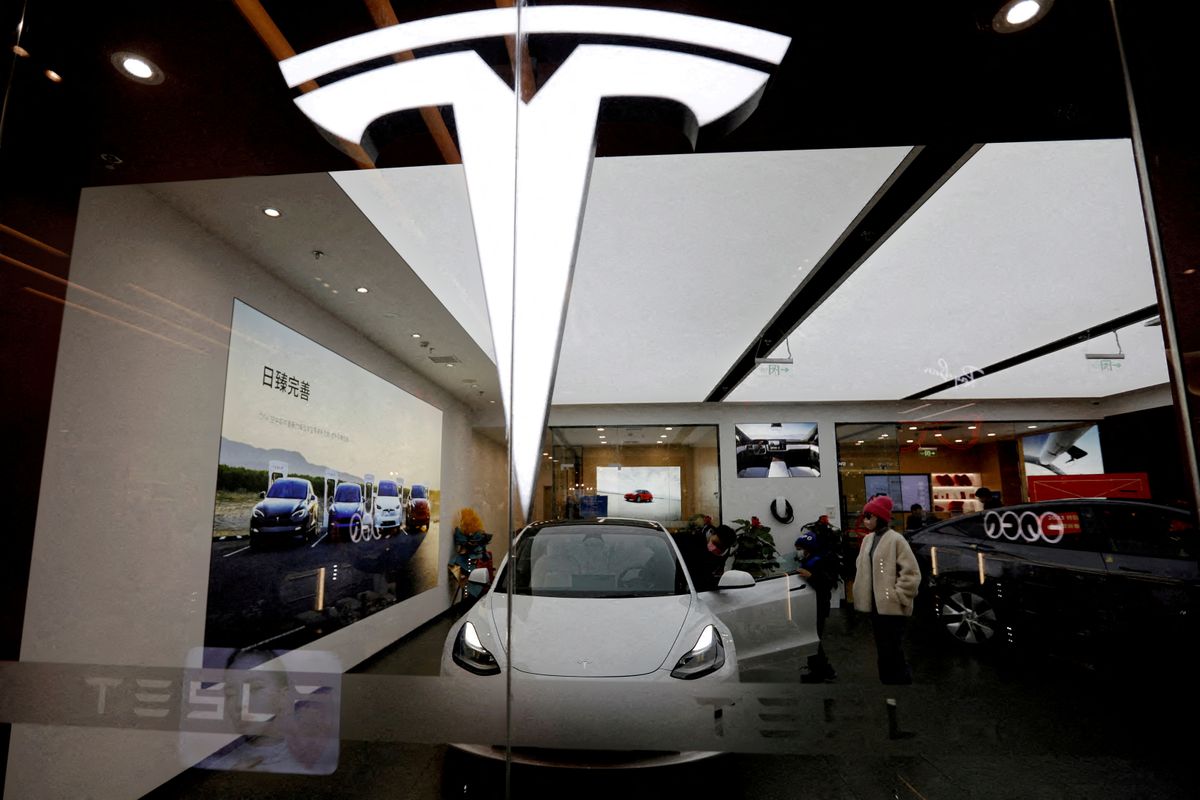Tesla's got some brakes to do – over a million cars “recalled” in China
If you're a Tesla fan, you might know that China is a goldmine for the company.

A few minutes every morning is all you need.
Stay up to date on the world's Headlines and Human Stories. It's fun, it's factual, it's fluff-free.
The backstory: If you're a Tesla fan, you might know that China is a goldmine for the company. It's where the world's largest auto market is, and Tesla depends a lot on China for making and selling its products. In 2021, Tesla raked in a cool US$18 billion in revenue from China, which is six times more than it made in 2019.
Tesla also built a massive factory in Shanghai in only 10 months. This factory is a huge part of Tesla's supply chain, and most of its cars are shipped from there. In fact, the factory produced more than 711,000 cars in 2022, which is more than half of all Tesla's global production.
More recently: The EV automaker sold around 1.13 million cars in China from 2014 through March, according to the China Automotive Technology and Research Center and Bloomberg. But, Chinese Tesla drivers have been complaining about their car's acceleration and braking problems for years. In one viral moment, a protester climbed on top of a display car at an auto show in 2021, saying her dad almost died because of a brake failure. Tesla did eventually apologize, but it didn't admit to any defects with the vehicles. And then, last November, a Tesla Model Y was involved in a crash that killed two people and injured three others. But again, Tesla said it wasn’t a car malfunction, pointing to data from the car and video suggesting the brakes were never applied before the crash.
The development: Now, Tesla is having a bit of a “recall” situation in China. The “recall” applies to over 1.1 million cars in China. But, the reason we put that in quotations is that its not like a typical recall – instead, this involves fixing an issue using an over-the-air software update to add additional safety features to prevent pedal misapplication.
Basically, some of the vehicles have defects that could make drivers accidentally press on the "gas" pedal for too long or when they mean to press the brake, which could lead to a crash. The thing is, this is a bigger problem with EVs because they don’t “vroom” the way that gas-powered cars do, and they accelerate more quickly, meaning its easier for drivers to press the wrong pedal – aka pedal misapplication – without realizing it.
The “recall” update covers Tesla’s imported Model S, Model X and Model 3 and China-made Model 3 and Model 6. Features will be added allowing drivers to choose the level of brake regeneration on their cars (which basically recycles kinetic energy lost when the car slows down and uses it to recharge the battery), as well as notifying the driver when they’ve pressed the accelerator.
Key comments:
“The vehicles within the scope of this recall do not allow the driver to choose the energy regenerative braking strategy; at the same time, the driver may not provide enough reminders when the driver depresses the accelerator pedal deeply for a long time. The superposition of the above factors may increase the probability of mistakenly stepping on the accelerator pedal for a long time, which may increase the risk of collision and pose a safety hazard,” said China’s State Administration for Market Regulation.
"I view a software update 'recall' as fairly mild relative to major recalls where customers have to take their cars to get serviced to fix an equipment issue," said Seth Goldstein, an analyst at Morningstar.
“We are taking precautions because the accident was dramatic, and the driver's version of events could potentially be a concern,'' said Jean-Baptiste Djebbari, French Transport Minister, last year after a deadly Tesla accident. “At this stage, we don't have any technical elements to lead us to believe there is a problem technical malfunctioning with this model.”
“You’ve got to look at the data, and the data in this case is available because the car can actually monitor the performance of the driver,” said Bill Russo, the founder and CEO of advisory firm Automobility Ltd. in Shanghai, referring to a Tesla crash in China in 2021.




Comments ()